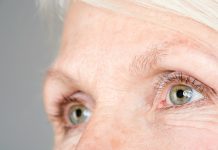
A comprehensive study from the National University of Ireland has shed light on the factors that might trigger a stroke, suggesting that emotional upsets and heavy physical exertion could significantly increase the risk of this serious condition.
The research, part of the global INTERSTROKE study, looked into 13,462 stroke cases across 32 countries, highlighting the diversity of the participants and the universality of the risk factors involved.
Strokes are a major cause of death and disability worldwide, with around 7,500 people in Ireland alone suffering from strokes each year.
Approximately 2,000 of these cases result in death, and many survivors live with long-term disabilities. Understanding the triggers that can lead to a stroke is crucial in reducing these numbers and improving public health.
The study’s findings are particularly striking. Researchers discovered that experiencing anger or emotional upset could increase the risk of having a stroke by about 30% within an hour of the episode.
This risk was even higher in individuals who had no history of depression, emphasizing how acute emotional stress can impact the body.
Additionally, the research indicated that engaging in heavy physical exertion could raise the risk of a specific type of stroke known as intracerebral hemorrhage by about 60% during the hour following the exertion.
Intracerebral hemorrhage, which involves bleeding within the brain itself, though less common than ischemic stroke (caused by a blood clot), is particularly dangerous. The increase in risk was noted to be higher in women and those with a body mass index in the normal range.
Interestingly, the study also found that simultaneous exposure to both emotional upset and heavy exertion did not increase the risk further, suggesting that each factor independently contributes to the risk profile.
These insights are vital for both individuals and healthcare providers. For the general public, the research underscores the importance of managing stress and emotional health, particularly in those with a predisposition to stroke or heart disease.
It also highlights the need for caution in physical activities, especially for those who might be at higher risk due to other health factors.
For those at risk, balancing mental wellness with physical health becomes imperative. Regular, moderate exercise is recommended, but it’s important to avoid overexertion, which could trigger adverse events.
Adopting a lifestyle that includes stress management techniques and a balanced approach to physical activity can significantly reduce the risk of stroke.
This study, published in the European Heart Journal, is a call to action for anyone concerned about stroke—whether personally at risk or caring for someone who is.
It’s a reminder of the delicate balance our bodies maintain and the impact our emotional and physical health can have on our overall well-being.
For further information or to understand more about how to prevent strokes, reviewing additional research and guidelines on stroke prevention can be invaluable.
If you care about stroke, please read studies about how to eat to prevent stroke, and diets high in flavonoids could help reduce stroke risk.
For more information about health, please see recent studies about how Mediterranean diet could protect your brain health, and wild blueberries can benefit your heart and brain.
Copyright © 2024 Knowridge Science Report. All rights reserved.



